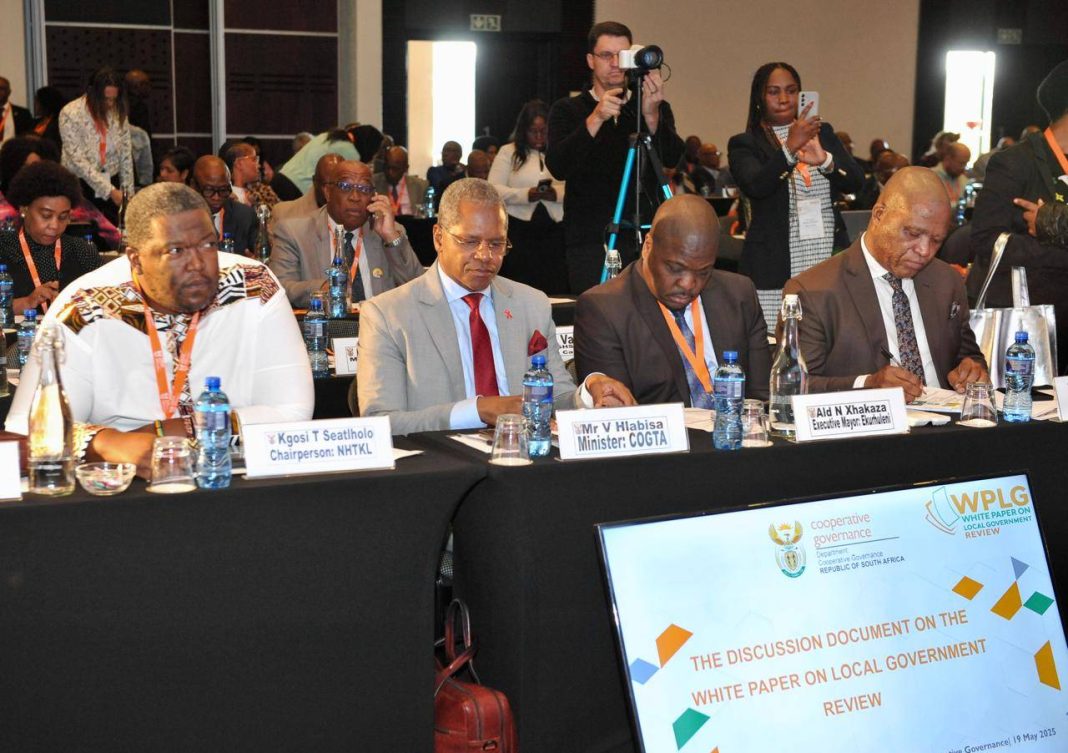By Simon Nare
The Minister of Cooperative Governance and Traditional Affairs (COGTA), Velenkosini Hlabisa, has called for the abolition of the tender system in municipalities to combat corruption.
Hlabisa, however, cautioned that he was not necessarily proposing a new law, but said he would sleep better at night if the tender system was completely scrapped.
He said that political parties would need to engage in discussions after next year’s Local Government Elections to find common ground on the issue, especially as many municipalities are likely to be governed through multi-party coalitions.
“We need to think outside the box when it comes to enhancing and maintaining infrastructure, especially as resources are becoming increasingly limited,” said Hlabisa.
“There has to be a new way of thinking—how are we going to fund infrastructure going forward? The issue of the tender process was clearly raised. I mentioned to the City of Ekurhuleni that life would be much better if the tender system were scrapped.”
“I’m not adopting a formal position, so as not to be taken out of context, but if the tender system were removed, everyone could simply do their work and earn their salaries at the end of the month.”
Hlabisa made these remarks during the launch of the seminal Review of the 1998 White Paper on Local Government at the Premier Hotel in Kempton Park, Ekurhuleni.
Joining him were various speakers, including Deputy Ministers Dr. Namane Masemola and Prince Burns-Ncamashe, chairperson of the Portfolio Committee on COGTA Dr. Zweli Mkhize and Ekurhuleni’s executive mayor, Nkosindiphile Xhakaza.
Hlabisa told delegates that as the government was reviewing the White Paper on Local Government, municipalities would have to learn quick about how to govern.
He said the current model was old and outdated and irrelevant.
He added that the political appointments in municipalities instead of hiring professional and efficient officials was another factor that was crippling the structures.
Hlabisa said the panelists in their engagements have raised the issue of engaging communities and the role of traditional leaders was clearly spelt out in these discussions.
The minister said as the government was reimagining a new approach, honest discussions have to take place on developing a new funding model.
He added that the District Development plan had found an expression during panel discussions and everybody agreed to new ways of doing things in municipalities.
The Department is reviewing the White Paper introduced in 1998 aimed at establishing a new local government system that promoted democratic participation, developmental roles, and cooperative governance.
The review of the White Paper on Local Government, launched on Monday, aims to address ongoing challenges in local governance, service delivery, and accountability.
“Many municipalities have struggled with inefficiencies, corruption, and neglect, which have led to public disillusionment and a lack of trust in local governance systems. The review of the White Paper on Local Government aims to address these challenges by proposing structural changes that enhance accountability and efficiency,” said Hlabisa.
“One of the primary objectives of the Local Government White Paper Review is to foster greater accountability and transparency in local governance. By emphasising a participatory approach to governance, the review seeks to empower communities to engage actively with their local institutions.”
“Through increased transparency measures, such as open budgeting processes and public consultations, the review aims to ensure that municipal leaders are held accountable for their decisions and actions. This shift towards transparency is vital for rebuilding trust between the government and communities, allowing citizens to have a say in the decision-making processes that affect their lives.”
Comments on White Paper Review can be submitted from the public by 30 June 2025.
Hlabisa urged full participation by communities.
The review is expected to be published in March next year.
INSIDE METROS

